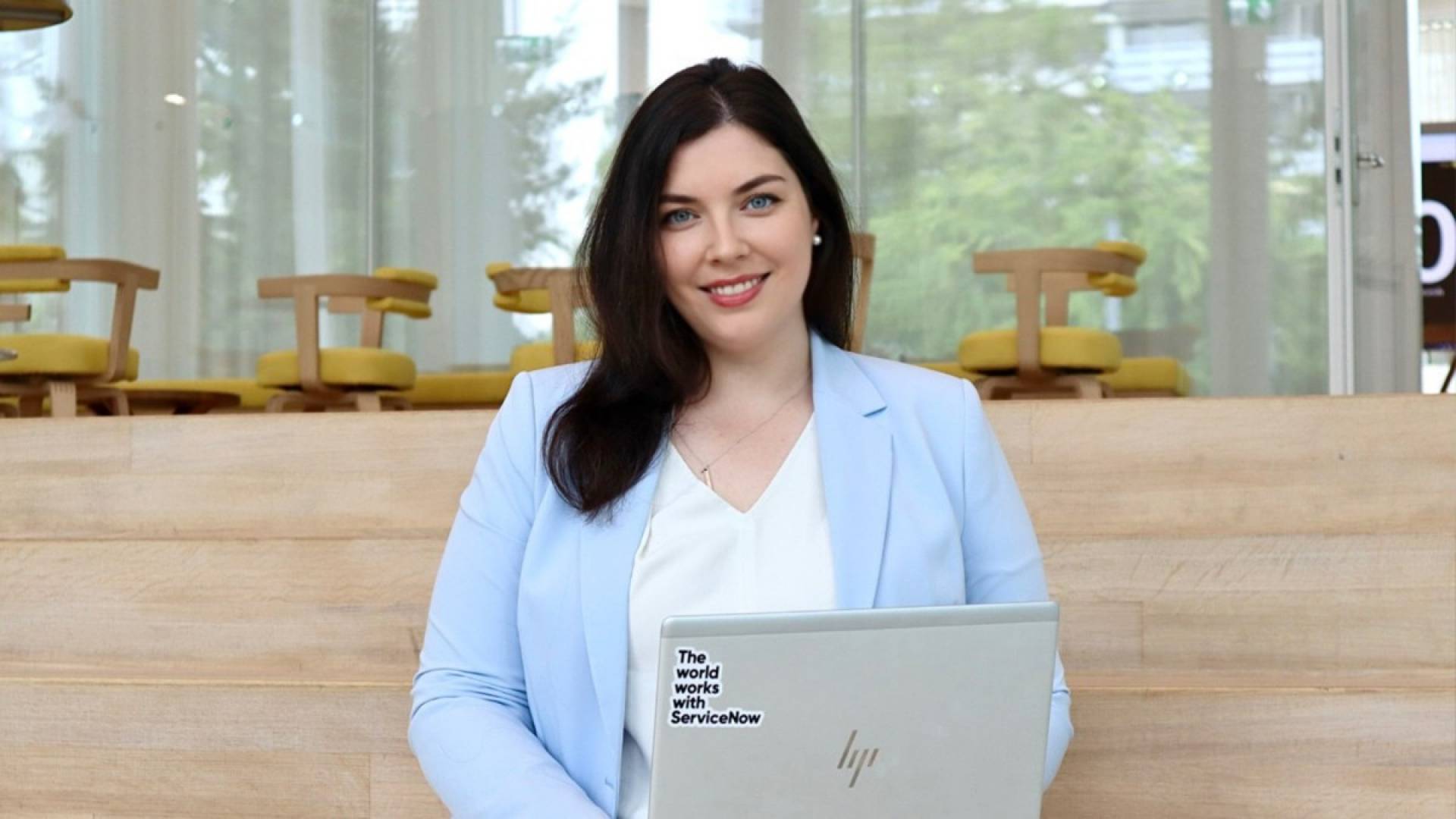-
"Employees need to think about sustainability"
22.04.2021 | Senada KadicWhat mindset does a person need if they're coming to work in Asset Management at Helvetia? We put this question to Renate Schabus, Head Portfolio Management & Manager Selection. The answer is relatively simple – or maybe it isn't.

"Employees need to think about sustainability"

So Renate, let's get a question about your own personal motivation out of the way first: why did you choose Helvetia as an employer? There are lots of career options for asset managers, such as working for a bank.
Well first of all, what I'm really interested in as an employee is working in an area which I can help to shape. There's a lot of change, a lot of new things happening – you get to input your own ideas here. The other reason is that in Asset Management at Helvetia we're often looking at very long-term horizons for investments. The focus for us is not on short-term profits from trading, which often plays a much more central role for banks. The long-term nature of our investments also means that we can really get to grips with sustainable investment.
How does "sustainable thinking" play out in your everyday working life?
For us in Portfolio Management, it means that for every investment decision we make, we factor in Environmental, Social and Governance (ESG) criteria. To help with this we use the ESG ratings from independent provider MSCI, which rates over 13,500 companies and states in terms of sustainability. We're assessed in 37 key areas, ranging from greenhouse gas emissions and energy efficiency, covering things like governance and workplace safety, and extending all the way to corruption. The subject of "decarbonization" – the CO2 footprint – is becoming more and more important to us. This means we need to think about how we want to deal with CO2-intensive industries, such as the coal industry. The impact of carbon emissions on people and the environment in the coming decades is something we all need to consider, and at the same time it's clear that these industries are under a great deal of pressure from various different directions. So the extent to which such investments will hold their value is also a key factor for us.
That seems to make sense as far as coal is concerned. Are the decisions always that "easy", or is it actually more complicated than people would think?
You’ve hit the nail on the head – it's rather more complicated. That's because it often hinges on the answer to this question: "What exactly is sustainability?" Opinions on sustainability differ considerably depending on what definition is used. The choice of information provider – for us it's MSCI – also plays a part. You have to completely understand their philosophy and be able to identify with it. At the end of the day it's the criteria and how they weight them that lead to the sustainability rating; there's no "industry standard". For example, some providers give religious or ethical criteria a higher weighting than others on their list. So it's a constant challenge to get everyone thinking about "sustainability" in the same way.
Can you give us a specific example of this?
Nuclear power is a good one. From a CO2 perspective, nuclear power is sustainable – but does that mean we would label it as a sustainable energy source? Unlikely. There are many other similar dilemmas, and that's why we need people who can explore these issues in great detail and constantly refine Helvetia's sustainability policy.
You've been in asset management for 16 years. How has the importance of sustainability changed over that time?
Over the last decade, the extent to which ESG criteria are considered in investment decisions has increased considerably. Changes in our environment, economy, politics and society can lead not just to risks, but also to opportunities, which are particularly significant when it comes to long-term capital investments. In Europe at least, none of the big asset managers can or want to ignore the topic of sustainability.
Is that sometimes difficult for portfolio managers?
At Helvetia, looking at ESG ratings has been part of our work life for years now, so it's just something we do automatically. Thinking about carbon footprints, though, is a whole different ballgame. We've still got work to do to establish such thinking better and to incorporate it into daily investment decisions as a matter of routine. That's where the knowledge and experience of our new employees can play a role. When it comes to sustainability, we've got work to do on many different levels, and it's an area that is developing constantly. It's the journey that's key, not the destination, because the journey's never going to end. Technical development is also a constant. Digitalization allows us to integrate sustainable investment into daily working life more easily, and to adapt sustainability criteria to changing conditions more quickly.
What does that mean for your team in specific terms? How does digitalization help you?
Dominik Gurtner's team is making a big difference. They're creating the ideal infrastructure for us to work even more efficiently and sustainably. We're getting ultra-modern front office solutions that allow us to carry out our work as efficiently and with as much automation as possible across systems. We'll soon be working with a central database so that all of us have the same information available. That will also make it easier for us to be more sustainable in our work.
All of that sounds quite challenging.
It is – but we feel positive about it. We're not yet where we want to be in all areas, but we're all doing our best to achieve our objectives together. There's a good team ethos, and everyone's contributions are important and valued. That's another reason why I'm at Helvetia.








